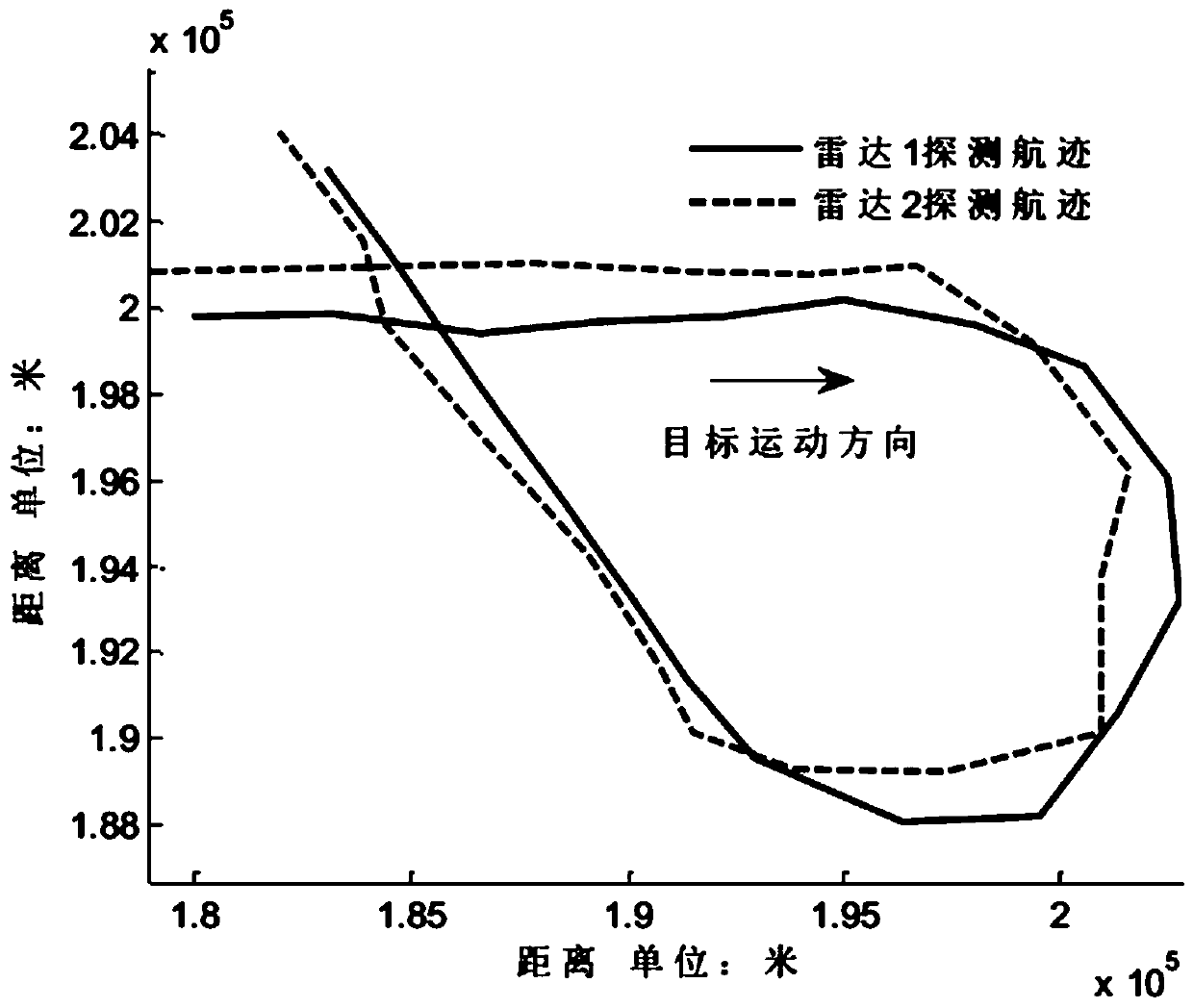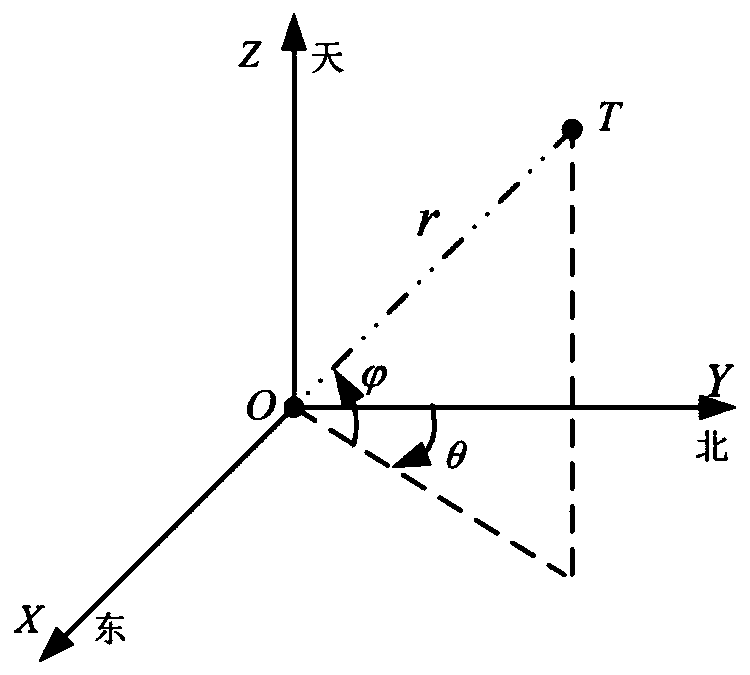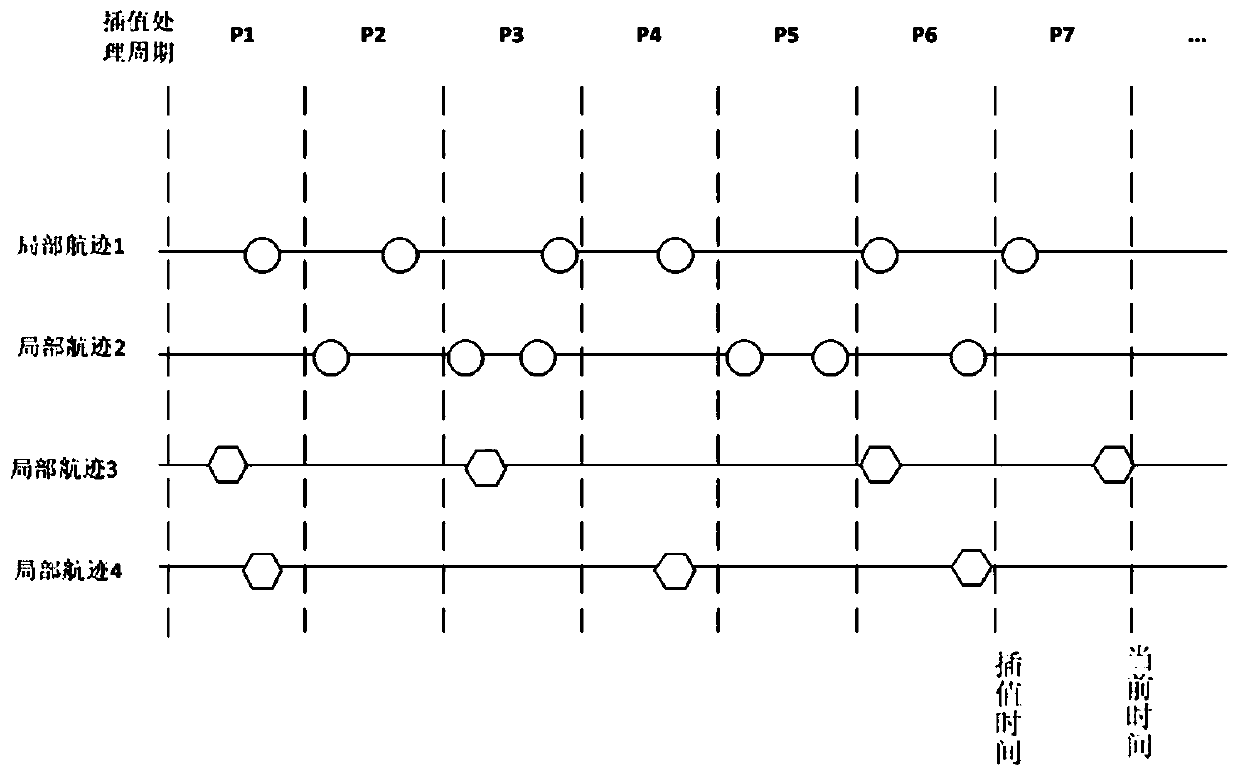An Adaptive Distributed Track Data Fusion Method Based on Covariance Index Function
A technology of index function and data fusion, applied in the reflection/re-radiation of radio waves, instruments, measuring devices, etc., can solve the problem that multi-sensor fusion cannot achieve the expected effect, the difference between local estimates is large, and it is difficult to deal with the influence of residuals, etc. question
- Summary
- Abstract
- Description
- Claims
- Application Information
AI Technical Summary
Problems solved by technology
Method used
Image
Examples
Embodiment Construction
[0060] The present invention will be further explained below in conjunction with the accompanying drawings and specific embodiments.
[0061] An adaptive distributed track data fusion method based on a covariance index function, comprising the following steps:
[0062] Step 1. Receive and store track data, and preprocess the received track data;
[0063] When the track data detected by the sensor arrives, it needs to be received and stored, and preparations such as coordinate transformation must be completed at the same time. For the needs of time interpolation, it is necessary to receive data packets of a certain length of time. Estimation fusion requires original measurement data, so the original measurement data also needs to be stored. In the data detected by the sensor, there are abnormal values in the speed, position or attribute value of some targets. Such data is defined as "outlier value". "Outlier value" is eliminated so as not to affect the subsequent time inter...
PUM
 Login to View More
Login to View More Abstract
Description
Claims
Application Information
 Login to View More
Login to View More - R&D
- Intellectual Property
- Life Sciences
- Materials
- Tech Scout
- Unparalleled Data Quality
- Higher Quality Content
- 60% Fewer Hallucinations
Browse by: Latest US Patents, China's latest patents, Technical Efficacy Thesaurus, Application Domain, Technology Topic, Popular Technical Reports.
© 2025 PatSnap. All rights reserved.Legal|Privacy policy|Modern Slavery Act Transparency Statement|Sitemap|About US| Contact US: help@patsnap.com



